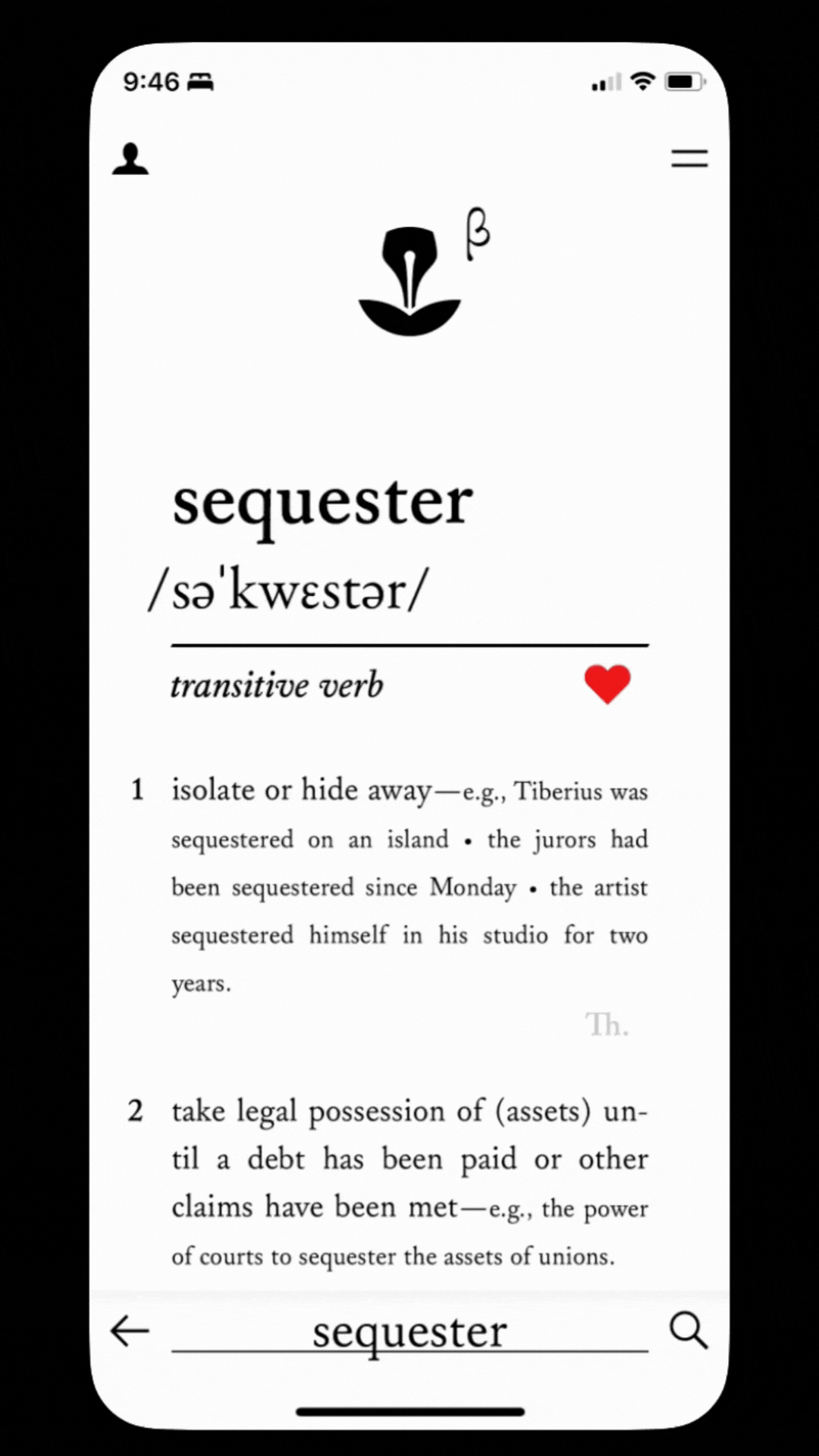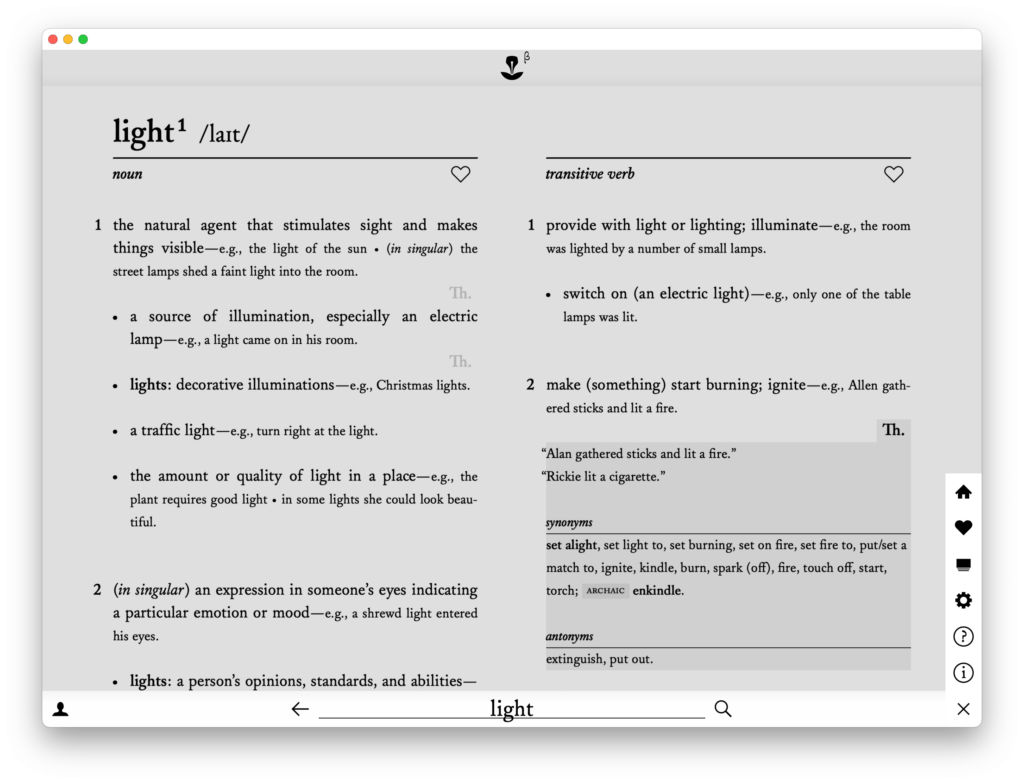Flowery & Oxford Languages
How Flowery uses Oxford Languages data to empower vocabulary
Flowery, a vocabulary-building app, integrates the Oxford Dictionaries API to help native speakers cultivate vocabulary mastery. By combining dictionaries with a sophisticated spaced repetition system, Flowery offers an innovative approach to learning and retaining complex words for greater communication. Here's how Flowery leveraged Oxford Languages to build a tool focused on mastery, trust, and user experience.
Flowery is a unique vocabulary-building tool that uses dictionaries and smart flashcards, focusing on language mastery rather than basic fluency.
— The Florist, Flowery’s founder
Flowery was developed to support native English speakers with mind cultivation and the exchange of ideas.
It accomplishes this by providing English dictionaries and thesauri enhanced with a spaced repetition system. The system intelligently creates and schedules flashcards for the user’s chosen vocabulary by combining a spaced repetition algorithm and a large language model. This offers a systematic method to help users remember words better and cultivate skills to speak and write effectively.

Other vocabulary features can be found on Flowery’s platform to support the development of speaking and writing skills, such as the word-a-day. It suggests five handpicked words with short definitions that rotate on weekdays, feeding their Reddit community with daily vocabulary.
Beyond the lexical content and methods to enrich vocabulary, Flowery also pays great attention to its user interface. It is programmed to provide users with a layout and typography inspired by printed dictionaries, giving users a more familiar and comfortable digital dictionary experience.
The app is currently marketed in the United States, Canada and the United Kingdom, aiming to reach an audience of approximately 400 million native English speakers eager to enrich their vocabulary.
Flowery is available online. It has its own platform and can also be installed on many operating systems like iOS, macOS, Android, ChromeOS, and Windows.
For more information about Flowery, powered by Oxford Languages data, click here.
As learners progress to the intermediate level, they often hit a vocabulary plateau, where retaining infrequently used words becomes increasingly difficult.
Besides this challenge, many available online dictionaries often have ads and other elements that create a busy page and cluttered user experience that easily distracts people from their primary purpose: learning a word.
— The Florist, Flowery’s founder
The challenge was clear: How could Flowery build a solution that allowed users to systematically memorize and retain advanced vocabulary, all while providing a distraction-free experience?
The dictionary is at the core of the Flowery app's user experience. Therefore, the app required an authoritative and comprehensive dictionary to enhance the user learning experience.
— The Florist, Flowery’s founder
Even before the idea of a vocabulary-building app came to mind, The Florist had noticed that leading search engines and e-readers rely on dictionary data from Oxford Languages, making it easy to think of reliable dictionary data.
While exploring the dictionary API options available in the market, Flowery came across our website and chose Oxford Dictionaries API as its dictionary and thesaurus data provider.
To serve its users in the US, Canada and the UK, Flowery licensed both English monolingual dictionary datasets via the API entries endpoint, and thesaurus data from the thesaurus endpoint.
Flowery’s cloud server queries our API for lexical information from:
- New Oxford American Dictionary (English American)
- Oxford Dictionary of English (English British)
- Oxford Thesaurus of British English
- Oxford Thesaurus of American English
Connecting Flowery to Oxford Languages allows access to many example sentences, detailed encyclopedic notes, and links between the dictionary and thesaurus entries. These are some of the features that Flowery liked to see in our data.

Instant access to our lexical data through the API proved beneficial for Flowery, which needed to start developing its product. Flowery welcomed the self-serve and usage-based model, which was ideal in its early prototyping stage. A well-designed and documented API also offered easier data integration.
— The Florist, Flowery’s founder
For Flowery, the most significant impact of our dictionary data lies in three categories: user experience, product development and trust.
The dictionary feature in the spaced repetition software works as an entry point, making the whole journey of browsing and selecting words to create flashcards user-friendly.
In terms of product development, the ready-to-use API helped reduce the time it took to launch the app. The API pricing model was also a factor that facilitated the development and helped bring Flowery to life.
By licensing Oxford Languages curated data via the API, Flowery also offered end-users lexical data they trust. Our reputation and history also reinforced customer trust.
— The Florist, Flowery’s founder
Since integrating Oxford Languages data, Flowery has gained several hundred new users. However, product development will not stop here; they have plans in their future roadmap, including additional tools like a built-in eBook reader to help users discover and save vocabulary.
To learn more about Oxford Languages from Oxford University Press, and how our data can power your products, get in touch through our contact page.
